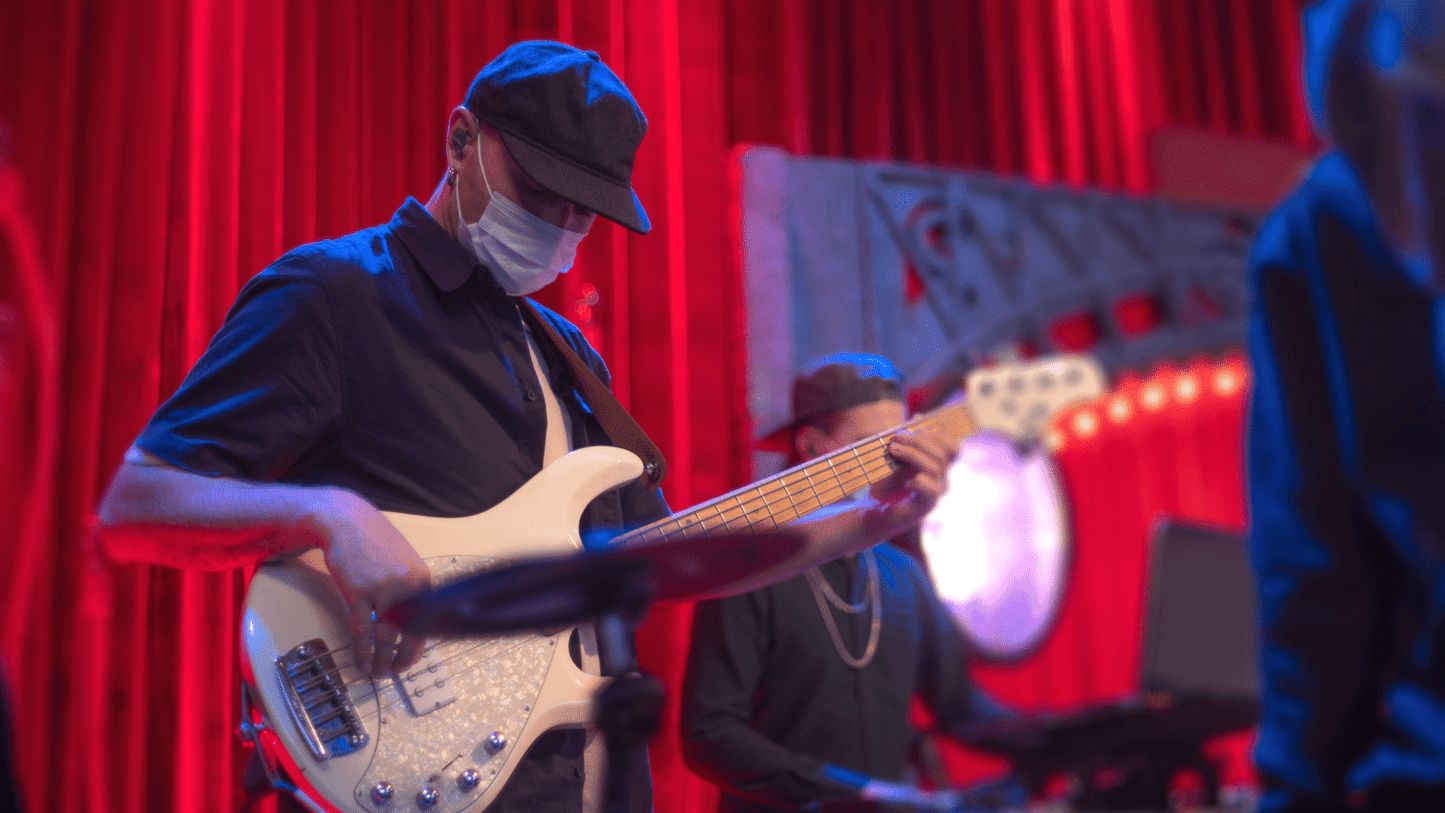
With the return of high profile festivals like Rolling Loud and Lollapalooza, live music made an impact this summer.
While it's great that artists are finally getting back on stage, we can't pretend that everything has gone back to normal.
That means it's up to venue owners and promoters to take steps to protect concertgoers' safety. From mask mandates to concert ear plugs, new safety protocols will become the new normal.
Fortunately, the long pause might be just what the industry needed in order to reevaluate how they can protect concertgoers in loud, potentially harmful environments.
"The vast majority of people are tired of the pandemic and can't wait for the situation to ease for the live entertainment industry," says Florian Eising, an event engineer from Berlin, Germany who specializes in large scale event safety and safety concepts.
"From a safety perspective, I can confirm that the event industry is ready for a return to live events. The industry has been very diligent and has developed proven protection concepts that, despite large numbers of visitors, do not increase the risk compared to, for example, a supermarket shopping trip."
Eising has a background in what is known in the concert industry as safety concepts, which means that "protection goals are defined, the possible risks are analyzed, and the essential requirements that must be met in order to ensure the safety of the visitors are identified," he says.
"Among the aspects examined are the installation and design of escape and rescue routes, fire risks, the use of pyrotechnics and flame systems, protective measures and action plans in the event of storms and lightning, evacuation scenarios and procedures, the involvement of the fire department, rescue services and police, the use of security services, the handling of sound emissions and the use of technical safety equipment."
The concert industry has long had to adapt on the fly, and Eising says this was proven once again during the pandemic. "Thousands of people working in the live entertainment industry had to reorganize quickly. Concepts that already existed could not be adapted to this new risk, and so everyone had to start from scratch. Almost all the colleagues I spoke to about it confirmed that they had never experienced such a high-pressure situation before."
For indoor concerts, Eising has some pointers for promoters and venue owners to reduce exposure risk, especially if they are taking place in a part of the world with relatively low vaccination rates:
- Organizers of indoor events should focus on reducing occupancy so that it's easier for visitors to keep their distance from each other.
- Continue taking temperature before entry, requiring masks at all times, providing hand sanitizer throughout.
- Investments in high-performance air ventilation systems have been funded to reduce the risk of covid transmissions significantly.
- Proper guest registration in case there is a need for contact tracing.
- Strategic crowd management to minimize contact.
Outdoor concerts have it a bit easier, he says. "Due to the usually much larger areas, they can hit capacity restrictions much better or simply distribute the original capacity over larger areas. This makes it much easier to maintain the necessary safety distances. There is also no need for expensive investments in ventilation systems, and in some places it is even possible to waive the requirement to wear a mask at events with seats."
As far as protecting customers' hearing, the concert industry has begun taking precautions very seriously.
"In many countries in Europe, it is part of the promoter's responsibility to protect visitors from the dangers of exposure to high volumes. For example, technical safety equipment is required to limit the volume of PA systems to a healthy level, and the promoter is required to provide simple ear plugs as PPE," he says. "In recent years, especially at major events in large cities, there are increasingly often high noise emission protection requirements that oblige the promoter not to exceed a maximum volume under any circumstances."
While promoters need to do their part by limiting the volume and offering ear protection for sale, concertgoers are ultimately responsible for protecting their own hearing. Brian Clark, owner of Musician Wave, says there's three steps every music fan should take when seeing a show:
- Don't stand next to speakers at concerts. “There are often large stacks of speakers towards the sides of venues and scattered throughout the arena for larger shows," Clark says. "Volumes from these can be way beyond safe levels and they can do considerable damage within minutes of exposure to these."
- Bring a set of musician's ear plugs just in case. "Even if you don't intend to wear these ear plugs, they're a great backup if you feel the volume is too high."
- Understand the risks. "Sustained exposure to anything over 85dB carries hearing health risks. Concerts go way above this. Hearing damage is very common and can be in the form of permanent ringing in your ears (tinnitus) as well as hearing loss," Clark says. "A good set of ear plugs help to reduce the volume to safe levels while retaining most of the clarity."
The concert industry is starting to emerge from one of the worst periods imaginable. But now that we're finally emerging from quarantine, Eising is confident that better days are ahead for all of us, especially music fans.
"After all, one thing has not changed to this day: 'whatever happens, the show will go on.’"
